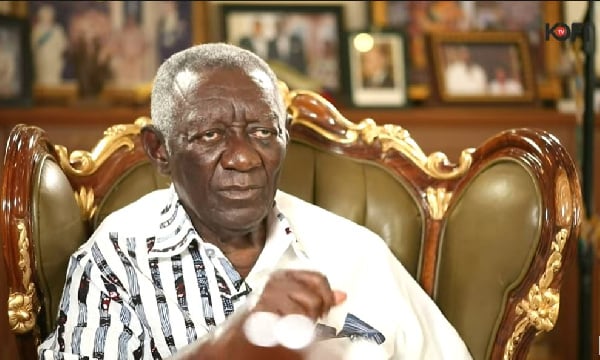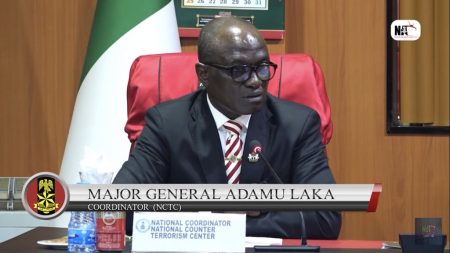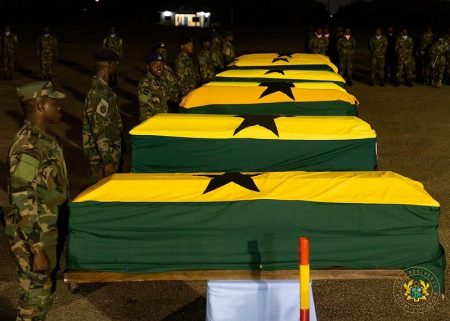Former President John Agyekum Kufuor’s harrowing near-death experience in 2007 serves as a chilling reminder of the ever-present dangers faced by those in public service, particularly poignant in the wake of Ghana’s recent helicopter tragedy. Kufuor’s ordeal began on a seemingly routine diplomatic flight from Libya to Sudan following a meeting with Muammar Gaddafi. Accompanied by an entourage, the former president boarded the aircraft, anticipating a smooth journey to Khartoum. However, shortly after takeoff, the plane inexplicably lost its ability to gain altitude, precariously hovering over the vast and unforgiving Sahara Desert. The initial moments of the crisis were marked by a terrifying silence from the cockpit, amplifying the growing sense of dread among the passengers. Flight attendants frantically redistributed luggage in a desperate attempt to stabilize the aircraft, while the passengers grappled with the chilling realization that they were teetering on the brink of disaster.
The agonizing uncertainty stretched for nearly 30 minutes, each tick of the clock a stark reminder of their precarious situation. Below, the endless expanse of the Sahara offered no solace, only a grim reminder of the potential consequences should their aircraft fail. The pilot, facing a critical decision, altered course towards the Mediterranean Sea, hoping to find more favorable atmospheric conditions. However, the struggle continued for almost an hour, the aircraft battling against an unseen force that kept it perilously close to the ground. Finally, the pilot, recognizing the gravity of the situation, made the difficult decision to return to Tripoli. The emergency landing was met with a sobering sight: fire trucks and security vehicles racing across the tarmac, a stark visualization of the averted disaster.
The pilot confirmed that the aircraft had been incapable of ascending further, underscoring the severity of the mechanical failure. Stranded in Tripoli, the delegation was forced to spend the night while arrangements were made for a replacement aircraft to complete their journey to Khartoum. The experience left an indelible mark on Kufuor, highlighting the inherent risks associated with high-level public service. His words, “I have witnessed something like this before,” resonate deeply, particularly in light of Ghana’s recent tragedy, where eight high-profile officials, including two government ministers, perished in a helicopter crash.
The tragic incident, which occurred in the Adansi Akrofuom District of the Ashanti Region, has cast a pall of grief over the nation. The officials were on a national assignment to Obuasi when their helicopter went down, cutting short their lives in the line of duty. The loss of these dedicated public servants has prompted an outpouring of tributes, highlighting their contributions to the nation and the profound impact of their untimely demise. The helicopter crash serves as a stark reminder of the fragility of life and the sacrifices made by those who serve their country.
The parallel between Kufuor’s near-miss and the recent tragedy underscores the inherent dangers faced by public officials, often requiring them to travel to remote and challenging locations. These journeys, undertaken in service to the nation, carry an element of risk that is often overlooked until tragedy strikes. The somber occasion prompts reflection on the dedication and commitment of those who serve in public office, often at great personal cost.
Both incidents serve as poignant reminders of the unpredictable nature of life and the importance of appreciating the service and sacrifice of those who dedicate their lives to public service. The outpouring of grief and tributes following the helicopter crash underscores the profound impact these individuals had on their communities and the nation as a whole. Their loss is a stark reminder of the fragility of life and the importance of cherishing every moment.














